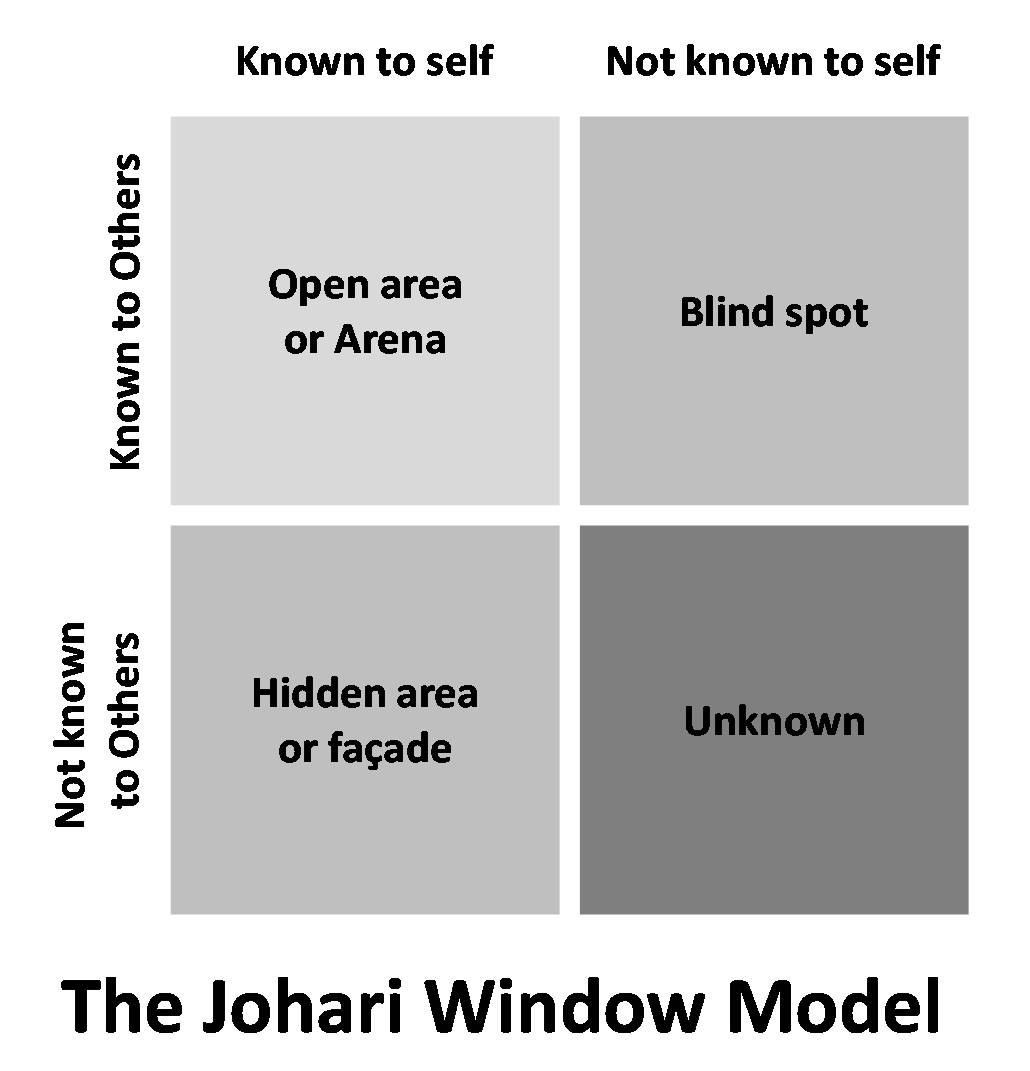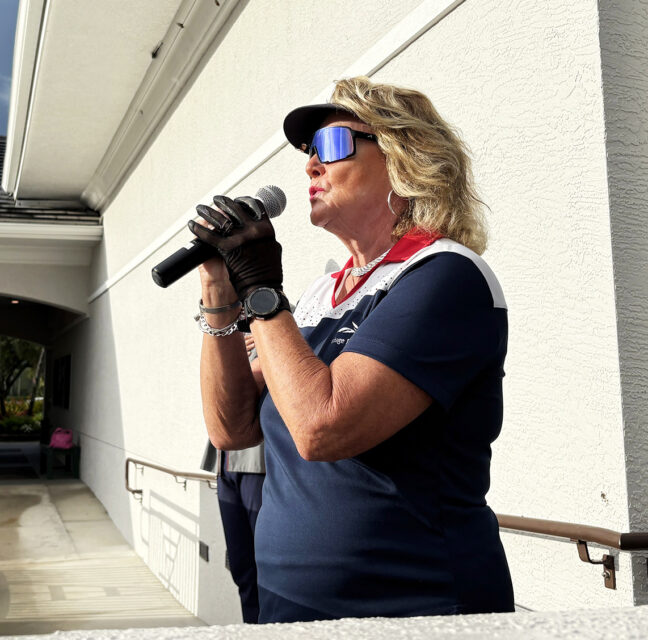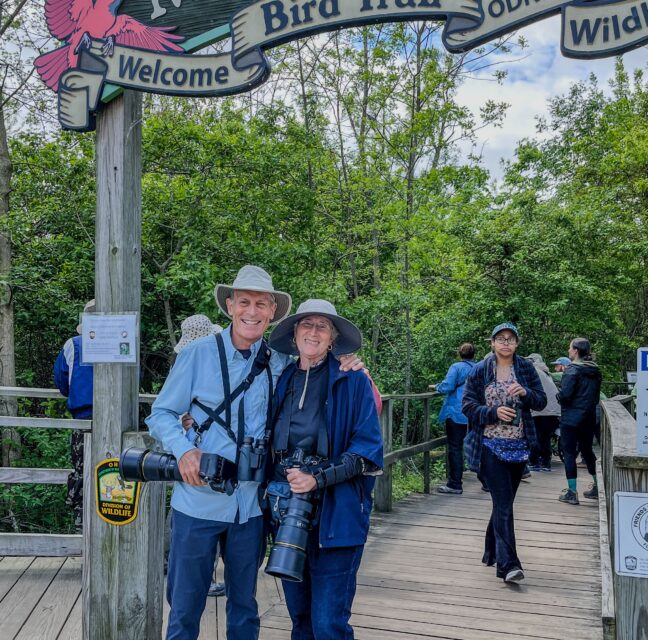

Continuing with ways to increase our self-awareness, I offer the Johari’s Window Model. As can be viewed below, the model is a quadrant with variables pertaining to self and others, as well as known and unknown. The combinations of these variables form windowpanes or a matrix.
The upper left-hand quadrant is defined by “What is known to self and What is known to others.” It is labelled as “My Public Self” or the “Open Pane” in a window. Quite simply, it consists of anything that you want to share with others. The quadrant below is the “hidden self” or “closed pane,” which includes things known to you that you choose for whatever reason not to share. The lower right-hand quadrant is labelled as “My Unconscious Self” or the “unknown pane.” For all intent and purposes this area does not exist existentially; it could be labelled as “yet to be discovered.” The upper right-hand quadrant is labelled as “My Blind Spots,” which contain things others see in you but, you do not see in yourself. It is a potential danger zone.
My rule of thumb for this upper quadrant, is “you never want anyone seeing things in you that you are not already aware of yourself.” Good or bad, you want a small blind spot, meaning that your public self would become larger because you have greater self-awareness of what others see that you didn’t see before.
Why Do We Have Blind Spots?
1) We may have received feedback from others but because we don’t like the feedback, our defense mechanisms (denial, defensiveness rationalization, etc.) stopped us from listening.
2) We don’t respect the giver of the feedback, so we don’t listen.
3) People may perceive you as overly aggressive or confrontational, and therefore, “walk on eggshells” around you, (assuming you would not listen anyway).
4) You project an image of not being interested or receptive to feedback (i.e., “know it all”), so why give it?
In conclusion, the only recommendation that I will make is to shrink your blind spot by becoming more self-aware about your weaknesses. This means that when someone criticizes you, you are already aware, and it’s not a shock, nor do you become defensive.
So, if someone calls a weakness to your attention, you can just say I am aware of that and then follow with two possible responses: “I am working on that,” or as Bill Parcells (former N.Y. Giants Football Coach) used to say “I am not for everyone.”







